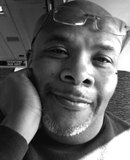Moses Asch, founder of Folkway Records
You’ve got an idea for a documentary. It’s true, an important story with relevance to viewers today. Fantastic. How do you tell it?
‘Writing the Documentary Treatment’ gets that process started. One question we’ll explore is, Who does the story happen to?
Like fiction, documentary films use the narrative elements that draw us into any story: intriguing characters, compelling scenes and conflict. (Conflict doesn’t mean people shouting. It can mean a disconnect between a person’s desires and her situation.) Some time ago I worked with Smithsonian Channel and Spark Media on a film about the original indie label, Folkways Records, which later became Smithsonian Folkways. In the 1940s, Folkways started on a shoestring. In a cramped Manhattan studio, they recorded musicians now recognized as legends: Woody Guthrie, Leadbelly, Pete Seeger and many more.
How do we tell that story in 47 minutes? In the first few minutes the film had to quickly establish why the story mattered – the iconoclastic label, the long string of recordings of all kinds, and the music that anyone would recognize.
Then, just as important: we had to show how its success was always precarious, and that Folkways was likely to collapse before any of that came to pass. We decided to show the moment where the founder, Moses Asch, faced disaster.
Asch, a sound engineer, envisioned starting his own record label but stumbled early. After bankruptcy in 1946, Asch was banned from having any significant role in the recording industry. At age 42, he considered his life a failure.
Why give precious screen time to such a low point, so far from Folkways’ ultimate success? Because in that moment we feel the crisis that Asch faced, and we feel the weight of what’s at stake: Recording wasn’t a platinum album or a paycheck for Asch. At some level it wasn’t even a choice. It was something he had to do. He would go rogue.
That reveals the essence of a leading character, and it does it through the action of his behavior.
The film, Worlds of Sound: The Ballad of Folkways, unfurls the legacy of the musicians and producers drawn into the Folkways orbit. Ultimately the story is bigger than Asch. But for grabbing viewers quickly, there’s nothing like a character in crisis.



